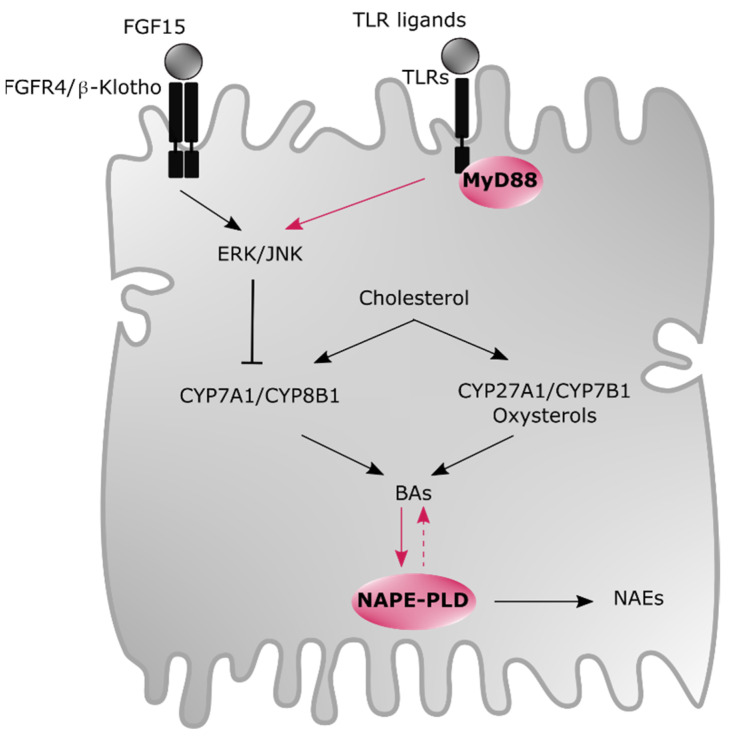Figure 3.
Modulation of oxysterol and BA profiles by the hepatic endocannabinoid and immune system in male mice. BAs are cholesterol-derived bioactive lipids synthesized by two pathways in hepatocytes: the classic pathway (i.e., CYP7A1 and CYP8B1) and the alternative pathway (i.e., CYP27A1 and CYP7B1), this latter being the main route for oxysterol production. BA synthesis is under the regulation of a negative feedback loop. When FGF15, produced by enterocytes and secreted into the portal vein, binds to FGFR4/β-Klotho receptor, it induces the repression of BA production by activating ERK/JNK enzymes. Interestingly, this repression cascade seems also under the control of the immune system involving TLR/MyD88 complex. Finally, a reciprocal regulation might take place between BAs and NAPE-PLD, which is responsible for generating other crucial bioactive lipids named NAEs. Abbreviations: BA, bile acid; CYP27A1, sterol 27-hydroxylase; CYP7A1, cholesterol 7α-hydroxylase; CYP7B1, oxysterol 7α-hydroxylase; CYP8B1, sterol 12α-hydroxylase; ERK, extracellular signal-regulated kinase; FGF15, fibroblast growth factor 15; FGFR4, fibroblast growth factor receptor 4; JNK, c-Jun N-terminal kinase; MyD88, myeloid differentiation primary response gene 88; NAE, N-acylethanolamine; NAPE-PLD, N-acylphosphatidylethanolamine-selective phospholipase D; TLR, toll-like receptor.

